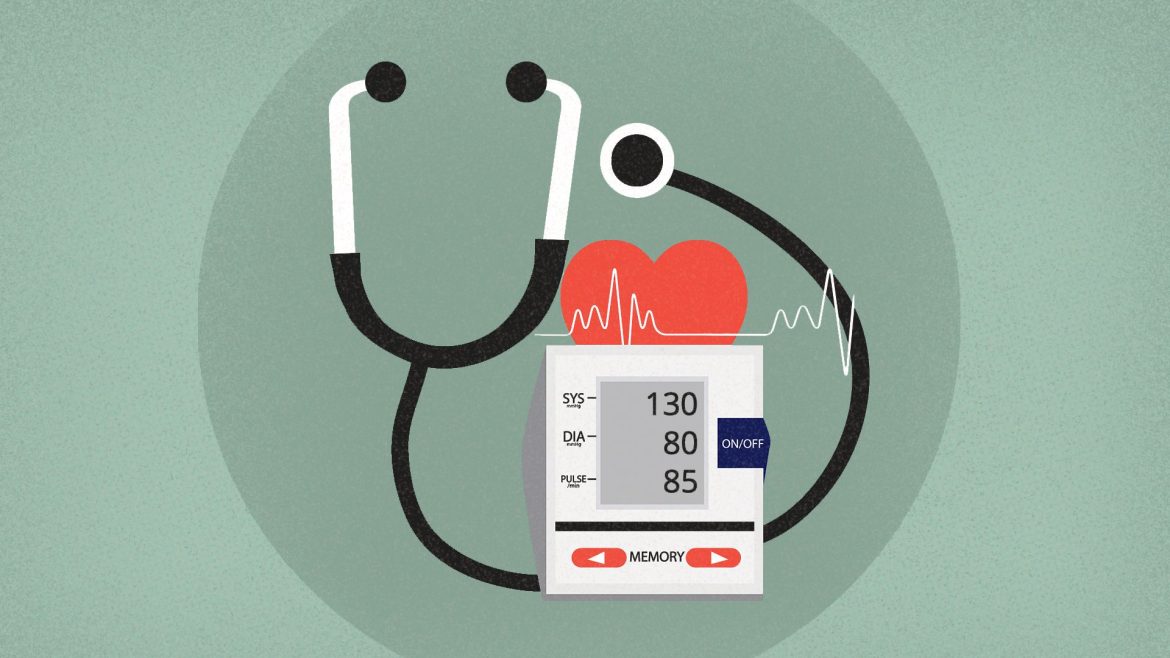Hypertension, commonly known as high blood pressure, is a pervasive health condition that affects millions of people worldwide. Despite its prevalence, many individuals remain unaware of the serious implications it can have on overall health. This article delves into the intricacies of hypertension, exploring its causes, effects, and the importance of managing this condition to prevent severe health complications.
What Is Hypertension?
Hypertension occurs when the force of blood against the walls of the arteries is consistently too high. Blood pressure readings are given in two numbers: systolic pressure (the pressure when the heart beats) over diastolic pressure (the pressure when the heart rests between beats). A normal blood pressure reading is generally considered to be around 120/80 mm Hg. Hypertension is typically diagnosed when readings consistently exceed 130/80 mm Hg.
SEE ALSO: Is Pulmonary Hypertension A Respiratory Disease?
Types of Hypertension
Primary (Essential) Hypertension: This is the most common type and develops gradually over many years without a specific identifiable cause.
Secondary Hypertension: This type is caused by an underlying condition such as kidney disease, hormonal disorders, or the use of certain medications. It tends to appear suddenly and cause higher blood pressure levels than primary hypertension.
Causes And Risk Factors
Lifestyle Factors
Several lifestyle choices can contribute to the development of hypertension, including:
Unhealthy Diet: Diets high in sodium, low in potassium, and high in unhealthy fats can increase blood pressure.
Lack of Physical Activity: Sedentary lifestyles can contribute to weight gain and increased blood pressure.
Excessive Alcohol Consumption: Drinking more than moderate amounts of alcohol can raise blood pressure.
Tobacco Use: Smoking or chewing tobacco can immediately raise blood pressure and damage the arterial walls.
Genetic and Biological Factors
Age: The risk of hypertension increases as people age due to the stiffening of arteries.
Genetics: A family history of hypertension increases an individual’s risk.
Race: Hypertension is particularly common among people of African heritage and often develops at an earlier age.
Health Conditions
Certain medical conditions can increase the risk of developing hypertension, such as:
Chronic Kidney Disease: Kidneys play a crucial role in regulating blood pressure, and any impairment can lead to hypertension.
Diabetes: This condition often coexists with hypertension, compounding health risks.
Sleep Apnea: Interrupted breathing during sleep can lead to increased blood pressure.
Symptoms And Diagnosis
Symptoms
Hypertension is often referred to as a “silent killer” because it typically has no symptoms until significant damage has been done to the heart and arteries. However, in some cases, individuals may experience:
- Headaches
- Shortness of breath
- Nosebleeds
- Dizziness
- Chest pain
Diagnosis
Hypertension is diagnosed through regular blood pressure monitoring.
Healthcare providers may recommend several readings over time or 24-hour monitoring to confirm a diagnosis. In addition to measuring blood pressure, doctors may conduct tests to identify any underlying conditions contributing to high blood pressure.
The Seriousness of Hypertension
Cardiovascular Damage
One of the most severe consequences of untreated hypertension is damage to the cardiovascular system. High blood pressure can cause the arteries to thicken and narrow, leading to:
Heart Attack: The narrowed arteries can limit blood flow to the heart, causing a heart attack.
Heart Failure: The heart has to work harder to pump blood against higher pressure, which can lead to the thickening of the heart muscle and eventually heart failure.
Aneurysm: Increased blood pressure can cause blood vessels to weaken and bulge, forming an aneurysm that can rupture and cause life-threatening bleeding.
Stroke
Hypertension is a leading risk factor for strokes. The condition can cause blood vessels in the brain to burst or become blocked, resulting in an ischemic or hemorrhagic stroke. Strokes can lead to severe disability or death, underscoring the importance of managing blood pressure.
Kidney Damage
The kidneys filter waste from the blood, and high blood pressure can damage these delicate blood vessels. This damage can lead to:
Chronic Kidney Disease: Hypertension can cause the kidneys to function less effectively, potentially leading to kidney failure.
End-Stage Renal Disease: Severe cases may require dialysis or kidney transplantation.
Vision Loss
High blood pressure can damage the blood vessels in the eyes, leading to:
Retinopathy: This condition can cause blurred vision or complete loss of sight if left untreated.
Optic Neuropathy: Blocked blood flow can damage the optic nerve, leading to vision loss.
Cognitive Impairment
There is growing evidence that hypertension can contribute to cognitive decline and dementia. The condition can affect the blood flow to the brain, impacting memory and cognitive function over time.
Conclusion
Hypertension is undeniably a serious health condition with far-reaching consequences if left unmanaged. Its impact on the cardiovascular system, kidneys, eyes, and brain underscores the importance of regular monitoring and proactive management. By adopting healthy lifestyle habits and, when necessary, taking prescribed medications, individuals can significantly reduce their risk of the severe complications associated with hypertension. Understanding and addressing hypertension is crucial for maintaining long-term health and preventing life-threatening conditions.

